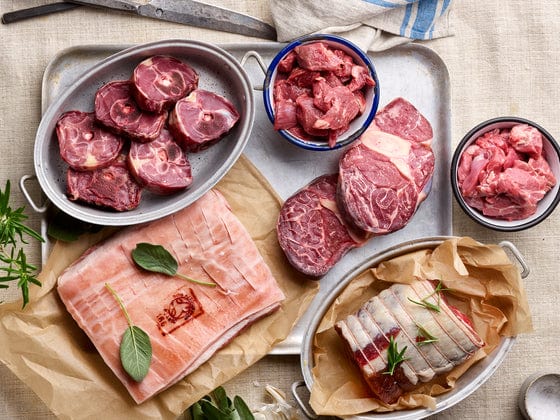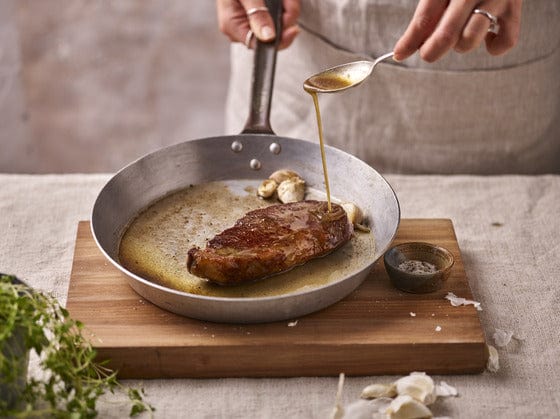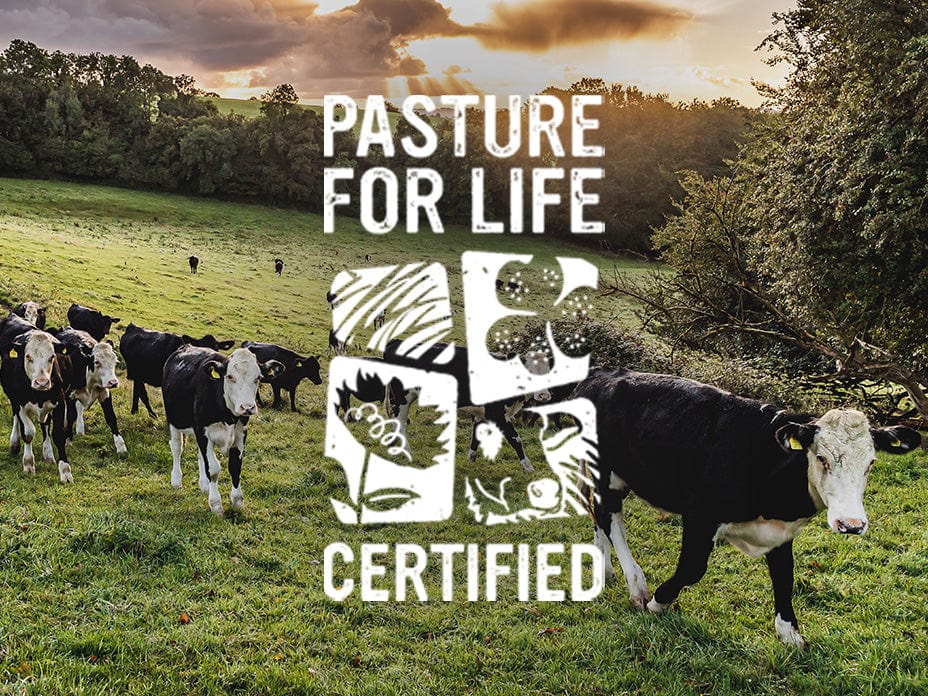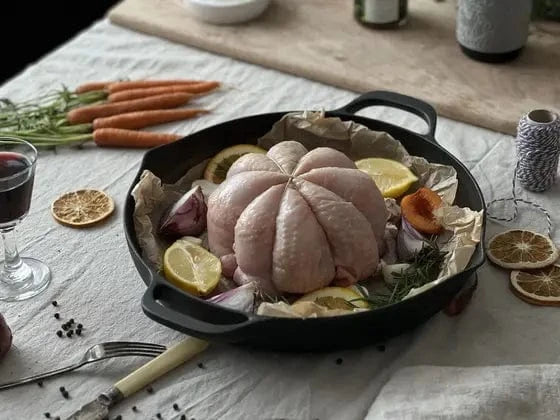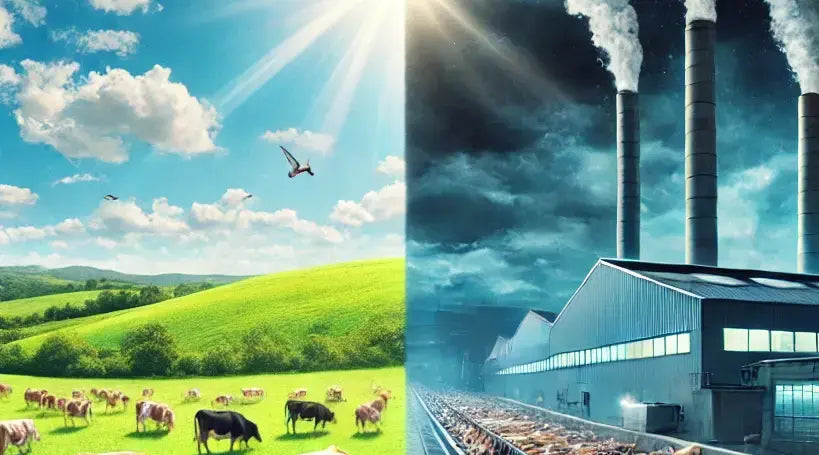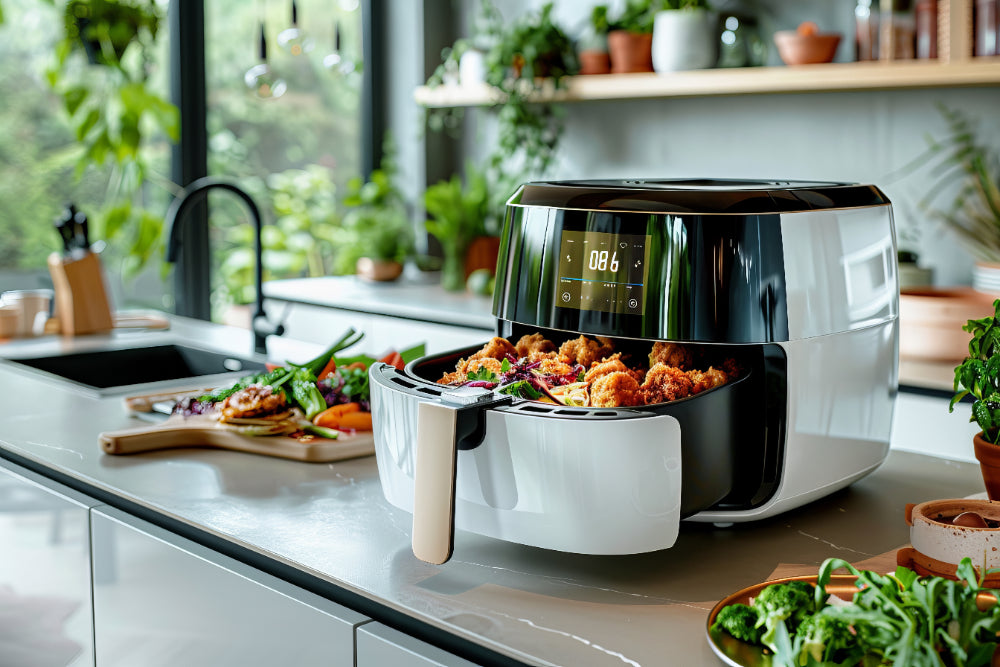The Hidden Price Tags of Cheap Meat
Factory farming is the backbone of cheap meat production. Animals are often confined to cramped, unnatural spaces, deprived of sunlight, and subjected to inhumane conditions to maximise output. Chickens, pigs, and cattle are forced to grow unnaturally fast, often resulting in painful health issues.
Supermarkets and large corporations drive prices down by pushing farmers to cut corners, leaving many struggling to make ends meet. This system benefits only the middlemen, while the hardworking farmers who raise and care for the animals are paid unsustainably low wages.
Cheap meat also comes with a heavy environmental toll. Factory farming relies on intensive farming practices that:
- Contribute to deforestation, as forests are cleared for animal feed crops.
- Pollute waterways with chemical runoff and animal waste.
- Emit vast amounts of greenhouse gases, fuelling climate change.
On top of all of this, the meat can also be pumped with water, artificial additives, and preservatives to make it look more appealing. Worse still, it frequently contains antibiotics and hormones, a result of intensive farming practices designed to keep animals alive in poor conditions.
What to Watch Out For on Supermarket Labels
Supermarkets often use clever marketing to make meat products appear more local and British than they truly are. Phrases like “Produced in the UK” or “Packed in Britain” can be misleading, as they often refer to where the product was processed or packaged, not where the animal was raised. Meat imported from overseas, where farming standards may be far lower, can still carry British-sounding branding, such as Union Jack imagery or countryside-inspired logos, creating a false sense of origin. Similarly, terms like “farm fresh” or “locally sourced” lack legal definitions, meaning they can be used freely without guaranteeing ethical or local sourcing. Always look for trusted certifications like "Organic" or "Red Tractor with Provenance", and check for specific details on farming location to ensure you're truly supporting British farms.
Why Organic Is Worth It
Organic farming puts animal welfare first. At Eversfield Organic, our animals live naturally – roaming freely and grazing on lush, nutrient-rich pastures. This results in healthier, happier animals, which means better-quality meat for you.
We also make sure our farmers are treated fairly. By paying them properly for their hard work and commitment to sustainable farming, we’re supporting a food system that values people, not just profits.
Organic farming works in harmony with nature. It avoids synthetic chemicals, reduces emissions, and uses methods that protect the soil, wildlife, and the planet for future generations.
What’s more, organic meat is free from harmful additives and chemicals. Our animals are fed natural diets, ensuring the meat is packed with flavour and nutrients – exactly how it should be.
Here’s why organic meat is better for everyone:
- Better Flavour: Healthy animals produce meat that’s naturally tastier and juicier.
- Nutritional Benefits: Rich in omega-3s, antioxidants, and essential vitamins.
- Peace of Mind: You know your food is raised ethically and sustainably.
When you choose organic, you’re investing in quality, sustainability, and a better future – for you, your family, and the world.
Ready to Make the Switch? - Shop now

